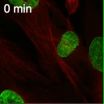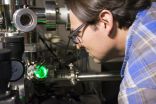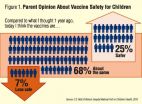In the first ever study of its kind, psychologists from Cardiff University recorded a 44% drop in the severity of crimes committed by persistent reoffenders, six months following the completion of a course designed to improve their ability to recognise other people's emotions. The findings are published today in PLOS ONE journal.
Much has been published previously to suggest that adolescents who display antisocial behaviour have problems in facial emotional recognition, particularly fear and sadness.
By heightening their ability to perceive these emotions, researchers believe they can instil in young offenders a stronger sense of empathy for potential victims, and consequently a reduction in physical aggression and instances of severe crime.
To explore this idea, they studied the emotion recognition capabilities and criminal activity of 50 juvenile offenders (with an average age of 16) from the Cardiff and Vale of Glamorgan Youth Offending Services (YOS).
While all the participants of the study received their statutory intervention - involving contact with a caseworker, as ordered by the courts - a sub-group of 24 offenders also took part the research team's facial affect training, aimed at improving their emotion recognition capabilities and normally used to rehabilitate patients with brain-damage.
Offenders in the sub-group and those only receiving statutory intervention were matched for age, socioeconomic status, IQ and criminal history. During the study, each group was tested twice for emotion recognition performance, and recent crime data was collected six months after testing had been completed.
Lead author Professor Stephanie Van Goozen, from Cardiff University's School of Psychology, said:
"Poor emotion recognition in children and adolescents can cause antisocial behaviour. Our study shows that this recognition can be corrected using an approach that is both cost-effective and relatively quick.
"Our findings support our belief that a population of individuals, whose combined offending produces the majority of harm in communities, can be made to behave less aggressively with the knock-on effect of bringing about a significant drop in serious crime.
"We would like to extend this research to younger age groups, particularly to children who are at risk of developing antisocial behaviour later in life that could result in violence, substance abuse, health problems and psychiatric illness.
"Emotion recognition training could set children on a much more positive path in life - one which doesn't have to involve serious crime or violence against others, to the benefit of society* and themselves."
Researchers measuring the severity of participants' crimes used a score system ranging from 1-8: '1' indicates a public order offence while '8' means murder. The average offence severity of the facial affect training sub-group was 3.75** six months prior to training, dropping to 2.08*** six months after.
Facial affect training consists of several levels of emotional tasks, where participants are required, among other scenarios, to identify the emotional expression of a face, to describe an event that has made them feel that emotion and mimic the emotion using a mirror. Tasks also include focusing on specified features of an emotional face and selecting the correct description of that feature from several options.
The emotion recognition test consists of 150 slides presented on a laptop, displaying facial expressions - including happy, sad, anger, fear, disgust - at varying degrees of emotional intensity. Participants have to guess what emotion is displayed.
These findings are consistent with the results of a study conducted at Bristol University in 2013, in which researchers succeeded in modifying a tendency for aggressive youths to interpret anger in ambiguous expressions. Participants reported feeling less aggressive and acting less aggressively for two weeks following the intervention.
INFORMATION:
Notes to editors:
*It has been estimated that the cost to society of a child displaying antisocial behaviour is 10 times that of a well developing child. In recognition of this problem, the 2012 Department of Health Public Health Strategy specified the prevention of violence as a public health priority. Researchers believe interventions that are able to reduce antisocial behaviour in young people will not only reduce crime, but also improve public wellbeing while reducing health inequalities.
**Class 2 = Criminal damage under £2,000, Threat to destroy property of another, Possession of articles with intent to commit criminal damage, class "B? or "C? drug possession. Threatening abusive or insulting words/behaviour intended to cause fear of violence/provoke violence.
***Class 3-4 = Supply of a class B or C drug, affray, theft, burglary, actual bodily harm, handling stolen property, making / using a false document, breach of anti-social behaviour order.
For further information please contact:
Tomas Llewelyn Barrett
Public Relations
Cardiff University
Tel: 029 20 875 596
E-mail: BarrettTL1@cardiff.ac.uk
Mobile: 07950960968
Cardiff University
Cardiff University is recognised in independent government assessments as one of Britain's leading teaching and research universities and is a member of the Russell Group of the UK's most research intensive universities. The 2014 Research Excellence Framework ranked the University 5th in the UK for research excellence. Among its academic staff are two Nobel Laureates, including the winner of the 2007 Nobel Prize for Medicine, University Chancellor Professor Sir Martin Evans. Founded by Royal Charter in 1883, today the University combines impressive modern facilities and a dynamic approach to teaching and research. The University's breadth of expertise encompasses: the College of Arts, Humanities and Social Sciences; the College of Biomedical and Life Sciences; and the College of Physical Sciences and Engineering, along with a longstanding commitment to lifelong learning. Cardiff's flagship Research Institutes are offering radical new approaches to pressing global problems. http://www.cardiff.ac.uk



